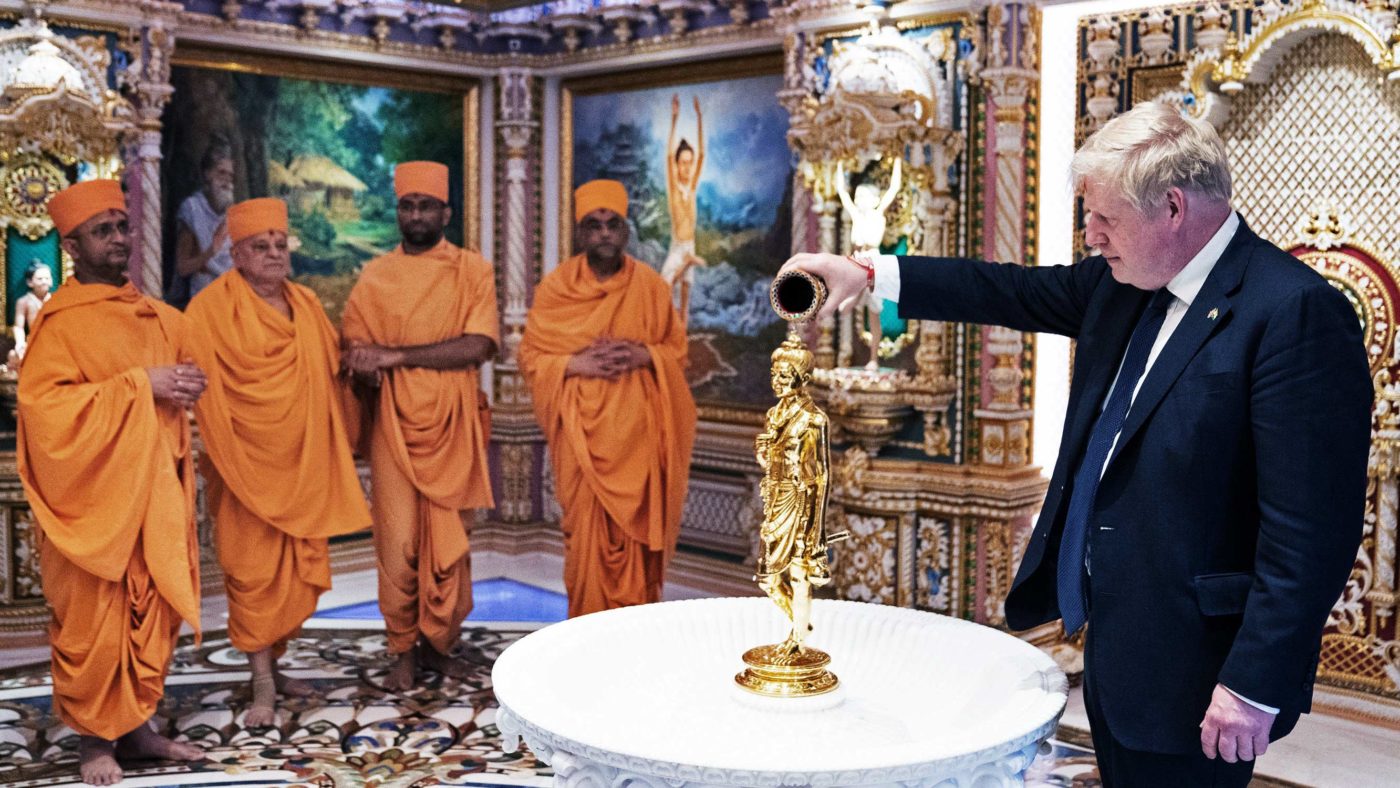While the Prime Minister’s domestic woes hog the headline, his trip to India this week matters far more for the UK’s long-term prospects than arguments about fixed penalty notices and who was ambushed by a birthday cake.
Like the US, the UK has made clear that it wants to pivot towards the Indo-Pacific. Some are now questioning the wisdom of that strategy, given a war in Europe, and some of the hard realities of Europe’s dependence on Russian energy being laid bare. To be sure, there are significant problems in our own back yard that the UK needs to address, but the Indo-Pacific is no less important a geopolitical and economic theatre for that.
In part because of the resurgence of autocratic regimes like Russia and China, old problems have resurfaced. The world is changing, and traditional concepts favoured by India – particularly its preference for non-alignment – may no longer be possible.
There are many groupings to which India belongs or aspires to belong which will need a different approach – a more aligned one, if you like. There is also a merger between geopolitical challenges and economic ones. Increasingly it is economic forces that shape and determine geopolitical realities.
India is facing a particularly difficult choice with respect to Russia and China. China in particular has ringed the Indian Ocean with its Belt and Road zones. Some of these, like the Hanbantota deep sea port in Sri Lanka, now include land that has reverted to a Chinese state-owned enterprise.
It’s not just economic expansion: China has also killed Indian soldiers on the border. It is becoming increasingly difficult for India not to ally itself more closely with Western nations when it comes to China. The Indo Pacific Security quad which India is a member of, along with the US, Japan and Australia will increasingly define itself by reference to China’s activities in the South China Sea and the Indian Ocean.
This is the context for the Prime Minister’s visit to India. The central plank of the trip is a series of investment and commercial deals, and a commitment to conclude a Free Trade Agreement by the end of the year. While many will (for good reason) be sceptical about such a deadline for a deal involving India, there are reasons to believe that Narendra Modi’s India of 2022 is different from the India with which many countries have unsuccessfully tried to negotiate trade deals in the past.
First, India has recently managed to negotiate a trade deal with Australia in relatively short order. Second, Modi’s government is embarking on the kind of domestic agricultural and labour reforms that many thought impossible. It has certainly been a bumpy road, triggering powerful protests, but the government seems to have an appetite for reform we have not seen before. These changes will be crucial to any FTA negotiation with developed countries like the UK.
India also has some focused demands which the UK does seem more able to support than in the past. For example, the Prime Minister openly talked about increasing visas for Indian tech professionals, where they can significantly add to the UK’s tech base. Britain is also less dogged by the defensive agricultural interests which have delayed an India-EU trade deal.
By contrast, full liberalisation in agriculture (albeit after some transition periods) was one of the key features of the UK’s Australia and New Zealand trade deals. That’s not to say all will be straightforward in this area: India will certainly want to see the UK complying with its sanitary and phytosanitary(SPS) obligations in the WTO – an area where the EU’s violations have already prompted complaints from various countries, India among them. The Indian government will want to see both market access for its agricultural products as well as market contestability. This means it will be looking to ensure that what market access is given with one hand is not taken away by regulatory barriers in the other.
The UK also has very focused interests in terms of legal and some financial services access, and lowering India’s taxes on scotch whisky. On data, the UK has announced ground-breaking deals which prevent countries from requiring the localisation of data as a price for data flow.
All of which means it’s certainly possible to see the outlines of a deal between the UK and India. More importantly, closer economic partnership between the two countries could be a key step in steering India away from its middle path between liberal democracies on the one hand and cronyist, highly distorted autocracies on the others. The fact is that a policy of non-alignment will become increasingly unsustainable in a world where the geo-architecture of defence, security and economics is shifting so profoundly.
Sooner rather than later a choice will have to be made. Let’s hope that the PM’s visit lays the groundwork for just such a change.
Click here to subscribe to our daily briefing – the best pieces from CapX and across the web.
CapX depends on the generosity of its readers. If you value what we do, please consider making a donation.


